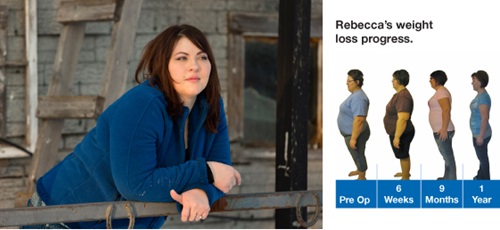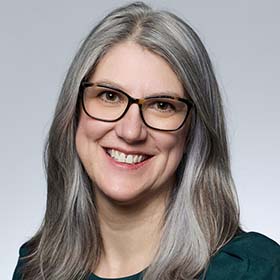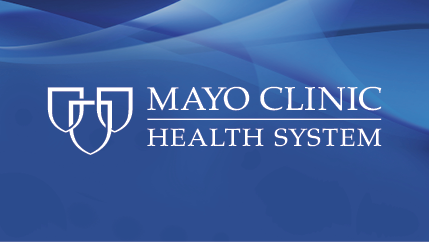Recent Posts
For herself and her family: Rebecca’s weight loss surgery
 “I’ve never been thin my whole life,” says Rebecca Ableidinger.
“I’ve never been thin my whole life,” says Rebecca Ableidinger.
But after she had her first child in 2006, Rebecca gained a lot of weight — fast. And five years and another baby later, the weight still hadn’t come off.
“I tried every diet out there they can sell you,” she says. “I didn’t have much luck with any of it.”
LOOKING INTO BARIATRIC SURGERY
Rebecca started researching weight loss surgery in 2010. Weight loss surgery makes changes to the digestive system to help you lose weight by limiting how much you can eat, by reducing the absorption of nutrients, or both.
“At that point, I almost felt hopeless,” says Rebecca. “I felt like I needed some kind of drastic change.”
But there was one catch.
“My husband, Joshua, and I wanted at least one more child,” says Rebecca. “If I couldn’t have any children after having weight-loss surgery, I was going to say no.”
She got good news from David Ciresi, M.D., a bariatric surgeon at Mayo Clinic Health System in Eau Claire.
“In general, mom and baby will actually do better during and after pregnancy if mom is lighter,” says Dr. Ciresi. Not only is infertility a common problem in obese women, they’re also at much higher risk of having significant complications during pregnancy and delivery.
After talking with her husband and other friends and family, Rebecca decided to go for it.
“I really had nothing to lose,” she says. “It was going to be a huge life change for me and my family, and I was ready.”

LEARNING BETTER HEALTH HABITS
At Mayo Clinic Health System, all weight-loss surgery candidates must complete a 12-week program called LEARN (Lifestyle Exercise Attitudes Relationships Nutrition), which explores the psychology of eating. In addition, there are required appointments with a dietitian, therapist, Internal Medicine doctor and surgeon.
“The first couple of weeks were intimidating, but once I was in it for about a month I could see how positive this was going to be for me and my family,” says Rebecca. “I was ready to stop the cycle of obesity. I wanted a better life for my kids and for me.”
Dr. Ciresi says most surgery patients keep 70% of their excess body weight off for at least three years thanks to the rigorous nature of the LEARN program and all the preparation prior to surgery.
“If they’re wholly invested in this new lifestyle before surgery, they’re more motivated to succeed afterward,” says Dr. Ciresi.

A YEAR OF WEIGHT LOSS, THEN A NEW BABY
During her surgery in March 2011, Rebecca’s stomach was reduced to the size of a small egg, only able to hold about an ounce of food. After a liquid diet for a couple of months, she transitioned to pureed food, and then to small portions of regular food as the pouch expanded slowly.
She lost between 20 and 30 pounds a month for the first several months. One year after surgery, she’d lost 127 pounds.
Dr. Ciresi noticed more than just physical changes.
“Rebecca was like many patients — when they first come in, they don’t have very good self-esteem and won’t smile a lot,” says Dr. Ciresi. “When I saw her after a year and she’s lost over 100 pounds, she’s so much more confident, her smile comes easily, and I could tell she was proud of herself — as she should be.”
“Dr. Ciresi and everyone on the team were really great and very in tune to the whole process,” says Rebecca. “I wouldn’t have been nearly as prepared or successful without the LEARN program and the support they provided. They really care, and they want you to succeed.”
About two years after surgery, Rebecca was pregnant. The team at Mayo Clinic Health System monitored her throughout the pregnancy to ensure that mom and baby were getting the nutrients they needed.
“I finally had a cute baby bump like most people have,” says Rebecca. “That was fun.”
Interested in weight-loss surgery? Find bariatric surgery information sessions near you.






